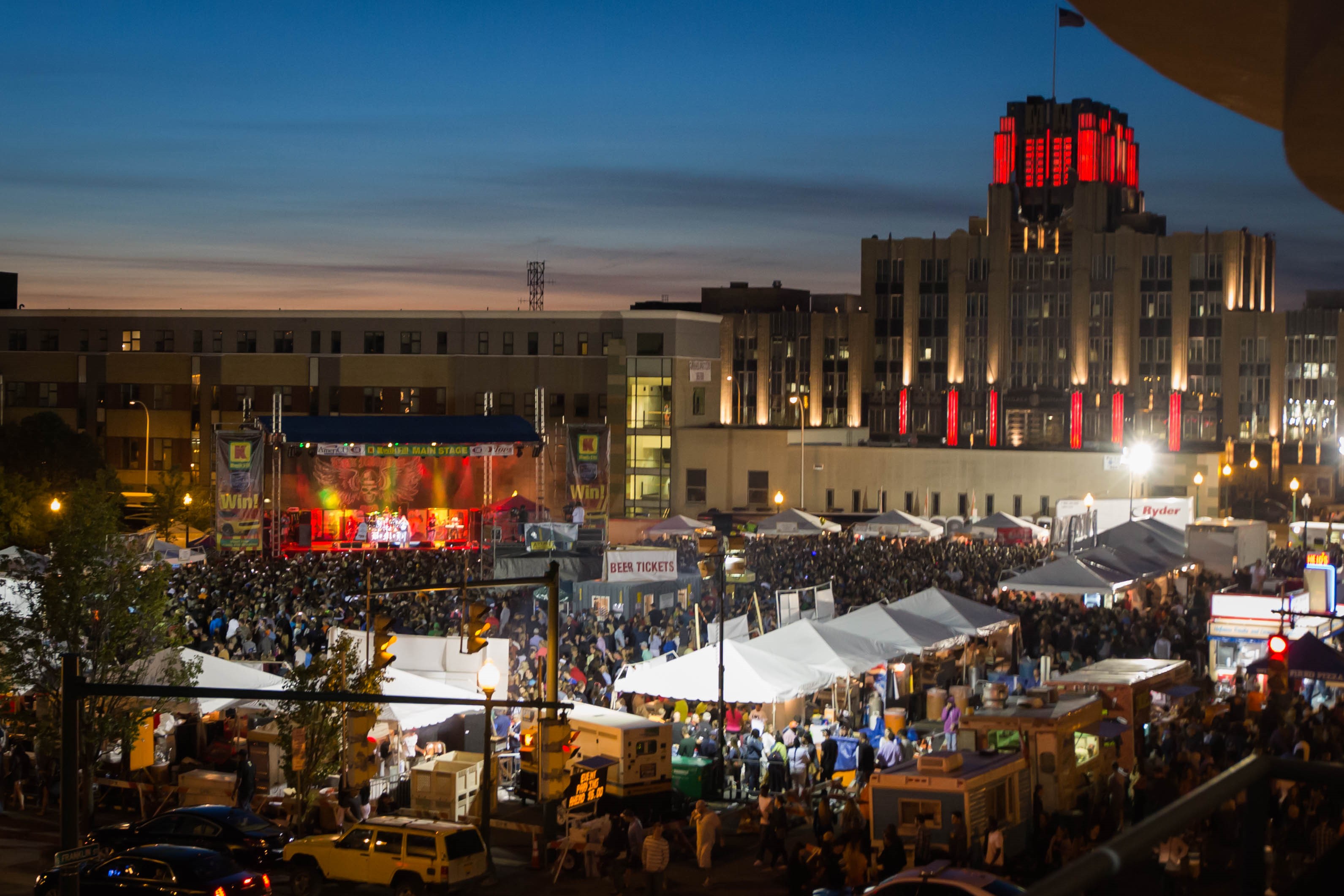
There are the people from your past and present who you connect with on social media. And then there the people you meet along the way with whom you strike up a digital relationship. I have a fair number of these “friendships” – people I may never meet with and even speak to IRL. But on social media, we are fast friends, seeing each other’s messages, observations, photos, and videos.
One of my Twitter buds is Michele Catalono (a.k.a. @inthefade) and I honestly don’t quite recall how we met. She may have interviewed me – or the other way around. Or I may have quoted a story she wrote for this blog.
However it happened, her tweets show up in my feed, and I often enjoy her flippant observations about music, sports, pop culture, and her observations. She’s clever, snarky, and entertaining on Twitter – not an easy feat.
So, the other day, no surprise to see her throw an elbow at the New York Times for giving lots of attention to an online startup that must make third world countries despise us:
what kind of pr magic do you have to work to get the new york times to basically put out a full ad for your business and disguise it as an article https://t.co/RPq6mAt1zj
— bring on the dancing horses (@inthefade) September 17, 2022
The headline had me at “cringe.”
This is so not a story I would normally read, and in fact, I think this type of banality is another in a long series of lame and blatant attempts by the Times to be cool.
But it was the weekend, and I clicked on the story about an online startup called Partiful. It’s a site that’s free to use, an evite company aimed at people who are going for a special gathering or get-together, perhaps one that has a unique dress code or theme.
It’s not first-in by any means. The Times article compares Partiful as similar to “Eventbrite but for Gen Z.” And as you’d imagine, rather than send reminders via text rather than email, Partiful is setting itself apart, while sending a message to their target audience of revelers.

If it’s possible to fathom, partying is trending up. Partiful CEO Shreya Murthy confirms there are “hundreds of thousands” of users on the platform, while event pages are up tenfold since the beginning of the year. At least on the two coasts, Partiful is trending.
The phrase that jumped off the digital page at me was actually mentioned by a serial party planner on the site, a New Yorker who has put together more than 20 dinners in and around the five boroughs.
She’s calls it “intentional socialization.”
With apologies to my friend, Lori Lewis, this is an entire different form of getting together – outside of Facebook, Insta, and Snapchat. The world is more than ready for IRL get-togethers.
Partying can be strategic, similar to a leisure form of LinkedIn where you meet people at a social gathering. It also can be used to build and reinforce a sense of community, especially post-COVID.
But it’s not just something young socialites in Manhattan and Malibu do to impress their friends. People of all ages and backgrounds may be thinking about how they’re spending their “PTO” hours and days. In other words, many are already engaged in this notion of “intentional socialization.” They want to do more than grab a beer, see a ballgame, or spend a quiet evening watching Netflix.
Partying with friends – whether you’re the bride or the groom – or someone who’s in the mood to bring together friends has rapidly become quite more social.
I’ve been hearing this sentiment in focus groups for months now, and this story about Partiful helped me connect the dots. People want there to be radio station events again; they want to meet the staff, tour the station, and engage.
 Interestingly, event marketing was all the rage in radio a decade or so ago. While most managers and owners were thinking more along the lines of “non-traditional revenue” than audience engagement, they saw the strong potential in bringing listeners together for fun and profit during those glorious pre-COVID days.
Interestingly, event marketing was all the rage in radio a decade or so ago. While most managers and owners were thinking more along the lines of “non-traditional revenue” than audience engagement, they saw the strong potential in bringing listeners together for fun and profit during those glorious pre-COVID days.
I remember during a market visit, an Ops Manager pulled me into his office with a panicked expression on his face. He told me all the market manager talks about in staff meetings is the need to create and throw more events. And as this nervous programmer confided in me, “None of us knows what we’re doing.”
ironically, we’re at a moment when event marketing for radio could, in fact, be a difference-maker – a way to foster community, build station brands, make the audience happy, and (yes all you CFO’s) generate a lot of non-spot dollars.
If radio broadcasters only had the staff and resources to “intentionally socialize.”

Some started leaning into this trend back when Ms. Murthy was in the third grade. Townsquare was originally built on an event marketing platform. Ed Levine, owner/founder of Galaxy Communications in upstate New York has long made events and gatherings of all types an important pillar of his company (Taste of Syracuse pictured).
And let’s not forget how Alternative stations once threw the best, most influential music festivals in radio, from Weenie Roasts to EndFests to HFStevals.
 People crave community – especially now. A number of smart public radio stations – like KPCC – in Los Angeles have made the most of the “open house” format (pictured), giving listeners from all over SoCal a chance to hang out with the hosts, staffs, and each other while enjoying tours of the station and the culinary offerings of food trucks in the parking lot and sponsors eager to some sampling.
People crave community – especially now. A number of smart public radio stations – like KPCC – in Los Angeles have made the most of the “open house” format (pictured), giving listeners from all over SoCal a chance to hang out with the hosts, staffs, and each other while enjoying tours of the station and the culinary offerings of food trucks in the parking lot and sponsors eager to some sampling.
Total costs of these open houses are minimal. But their maximum impact is both rewarding, financially and from the “intentional socialization” point of view.
As my aforementioned client found out – the hard way – lacking the resources, human and financial, for a successful event marketing program is a recipe for disaster. There’s no easier way to lose money – and lost of it – than in an event, concert, or festival gone bad. If you know, you know.
But as Ms. Murthy and her hundreds of thousands of users are discovering, clever event marketing can be just the thing, especially right now while we crave the company of others.
Did I mention Spotify, SiriusXM, or TikTok cannot do this on a local level?
I hope there’s an exciting “intentional socialization” strategy in your immediate future, and you’re able to create successful events.
Just don’t look for me or Michele there. We’re responding “no” on those text evites.
- In Radio, You Just Never Know - April 17, 2025
- The Secret To Making A Great Podcast (And Great Radio) - April 16, 2025
- I Read The (Local) News Today, Oh Boy! - April 15, 2025




It certainly doesn’t hurt if the particular station or cluster is marketing its planned new offices and studios as a “community hub”…
https://www.wfae.org/inside-wfae/2022-09-20/wfae-to-create-a-center-for-community-engagement-in-uptown-charlotte
Wow, that’s how it’s done. Be an integral part of the community–something no one’s not aware of.
My hate is off to WFAE. They are doing this right. WMFA (Austin), the Classical station, has done something similar, becoming a Classical music/cultural center in Austin.
Who can forget probably the most infamous “intentional socialization” radio promotion? Disco Demolition! The Loop couldn’t buy that kind of promotion.
And legend has it that all of the people who said they were there, were actually there, there’d a been more people.
Jerry, funny, but I found a way to include DDD (Dahl’s Disco Demolition) in today’s post. I will say this – I watched on TV. The Sox were playing my Tigers that day.